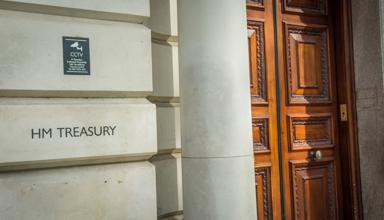On 13 December, the Welsh Government will publish its Draft Budget for 2023-24. It does so following the UK Government’s Autumn Statement, and in the context of rising prices for households, mounting pressure on public services and facing an expected prolonged recession.
How will it prioritise the funding it has, and how will the Senedd scrutinise those choices? This article provides some background for the Welsh Government’s debate on Tuesday.
What will the budget look like?
The Welsh Government’s Draft and Final Budgets for 2022-23 included allocations for the next two years. However, these were indicative only, and in-year allocations since the Final Budget (published in March) mean published allocations for 2023-24 and 2024-25 are likely out of date. The most recent Supplementary Budget doesn’t update those figures. So while the Welsh Government has allocated around £24.3bn to its departments in 2022-23, we don’t yet know exactly how much will be available in 2023-24.
The UK Government says it’s allocated an additional £1.2bn to the Welsh Government over the next two years. However, the Welsh Government says, accounting for inflation, the overall settlement over the three-year spending review period (2022-23 to 2024-25) will be worth less in real terms than it was at the time of the Spending Review (October 2021). It also says in 2024-25 it will be no higher in real terms than in the current year and capital budgets will be 8.1% lower. Wales Fiscal Analysis (WFA) calculates losses due to inflation, even after additional funding, could total over £800m in 2023-24 and £600m in 2024-25. The Minister for Finance and Local Government said in November:
The extra funding does not come close to what we need to meet the pressures across all areas of our budget...
WFA says there might be a case for the Welsh Government to use devolved income tax powers. It estimates, if all three Welsh Rates of Income Tax increased by 1p, the Welsh Budget could increase by 1.4% next year and in 2024-25.
Economic challenges ahead
The Welsh Government faces a number of challenges in 2023-24. The Office for Budget Responsibility (OBR) says “living standards are set for the largest fall on record” this year and next. The Bank of England expects the UK to remain in recession throughout 2023 and the first half of 2024.
In November we outlined how rising costs are hitting low-income households hardest. Both the Welsh and UK governments have provided cost of living support over recent months, and a list is available in our guide to cost of living help and information.
In its Autumn Statement, the UK Government included a commitment to maintain capital spending in cash terms until 2027-28. However, as the WFA points out, the outlook for the Welsh Government’s capital budget is “gloomy”; capital spending plans to 2024-25 were not revised upwards despite higher inflation and "real terms cuts in capital spending have been pencilled in beyond 2027-28”.
Under pressure?
Recent budgets have allocated over £8.4bn to the COVID-19 response since the start of the pandemic. We’re now seeing a tailing off of this funding, with total cases low compared to the previous peaks.
In July, the Minister outlined pressures on the Welsh Government’s budget “from the wage bill to procurement of goods and services to the capital programme”. She does not expect increases to the Welsh Government’s budget to finance increases in public sector pay.
As well as employing around 6,000 staff, the Welsh Government provides funding for other public sector organisations in Wales, including local authorities and the NHS. NHS pay pressures along with inflation have been highlighted as contributing to significant funding shortfalls and strike action has been voted for by nurses in Wales for the first time. Before the Autumn Statement, the Minister for Health and Social Services, Eluned Morgan MS, alongside her Scottish counterpart, called for increased funding for NHS pay.
Responding to the UK Government’s Autumn Statement, along with the economic and fiscal forecasts, the Minister for Finance and Local Government said:
“In the face of these pressures, we must be realistic about what we can afford.”
The WFA estimate pay deals of 5% in 2022-23 and 3.5% in 2023-24 will increase the devolved public sector pay bill by £288m a year.
What are the key priorities for stakeholders?
The Welsh Government urged the Chancellor to “invest in people and public services”, prior to making his Autumn Statement.
The Senedd Finance Committee has been undertaking its own work in the build up to the Budget. In July, the Committee held a stakeholder event in Llanhilleth. Stakeholders identified priority areas for funding:
- The cost of living pressures
- Long term sustainability of public services
- Responding to climate change and nature emergencies
- Tackling poverty and housing
- Economy and infrastructure
- Children and young people
- Taxation
Further details on these areas can be found the Finance Committee Summary Engagement Report.
As part of the Finance Committee’s work, the Senedd’s Citizen Engagement Team conducted focus groups in June 2022 across Wales. Its report highlights that participants most frequently prioritised education, children and young people, closely followed by health and social care. Most groups also highlighted climate change and agriculture as priorities for funding.
In July, the Finance Committee also held a debate on spending priorities for 2023-24, highlighting its recent engagement work with the Welsh Youth Parliament, stakeholders and citizens. The Finance Committee also ran a consultation from 23 September to 18 November, with responses published online.
What happened last year?
After the scrutiny of the Draft Budget 2022-23, which was the first multi-year budget since 2017, we identified key things we learnt, including:
- It was the fourth consecutive year the Senedd had less time to scrutinise the budget than processes normally allow (the situation is similar this year).
- Welsh Government departments had (at that point) 15% more funding for day-to-day spending than in 2021-22, but far smaller increases were indicated for 2023-24 and 2024-25.
- The Welsh Government said capital funding falling in each year of the settlement (2022-23 to 2024-25) would be “particularly challenging”.
- Funding in response to the climate and nature emergency may not have been enough (and may not have been new money).
The Senedd Committees published reports on their scrutiny of the Draft Budget 2022-23. Following its scrutiny of the Draft Budget for 2022-23, the Chair of the Finance Committee said:
…it is clear from the evidence received that significant challenges remain if the Welsh Government is to realise its vision and real leadership is needed if the Minister’s deeds are to match her words.
What next?
The Draft Budget 2023-24 will be published on 13 December, and the clock starts ticking for the Senedd’s scrutiny. Senedd Committees have until 6 February 2023 to take evidence from witnesses and scrutinise the budget with Ministers .
The Senedd will debate the Draft Budget on 7 February 2023 and at the end of that month the Welsh Government is due to publish its Final Budget.
Tomorrow we will find out how the Welsh Government plans to deal with what WFA refer to as a “perfect storm for the economic and fiscal stability of Wales”. It’s then up to the Senedd and its Committees to understand what those plans mean.
Article by Božo Lugonja and Owen Holzinger, Senedd Research, Welsh Parliament






